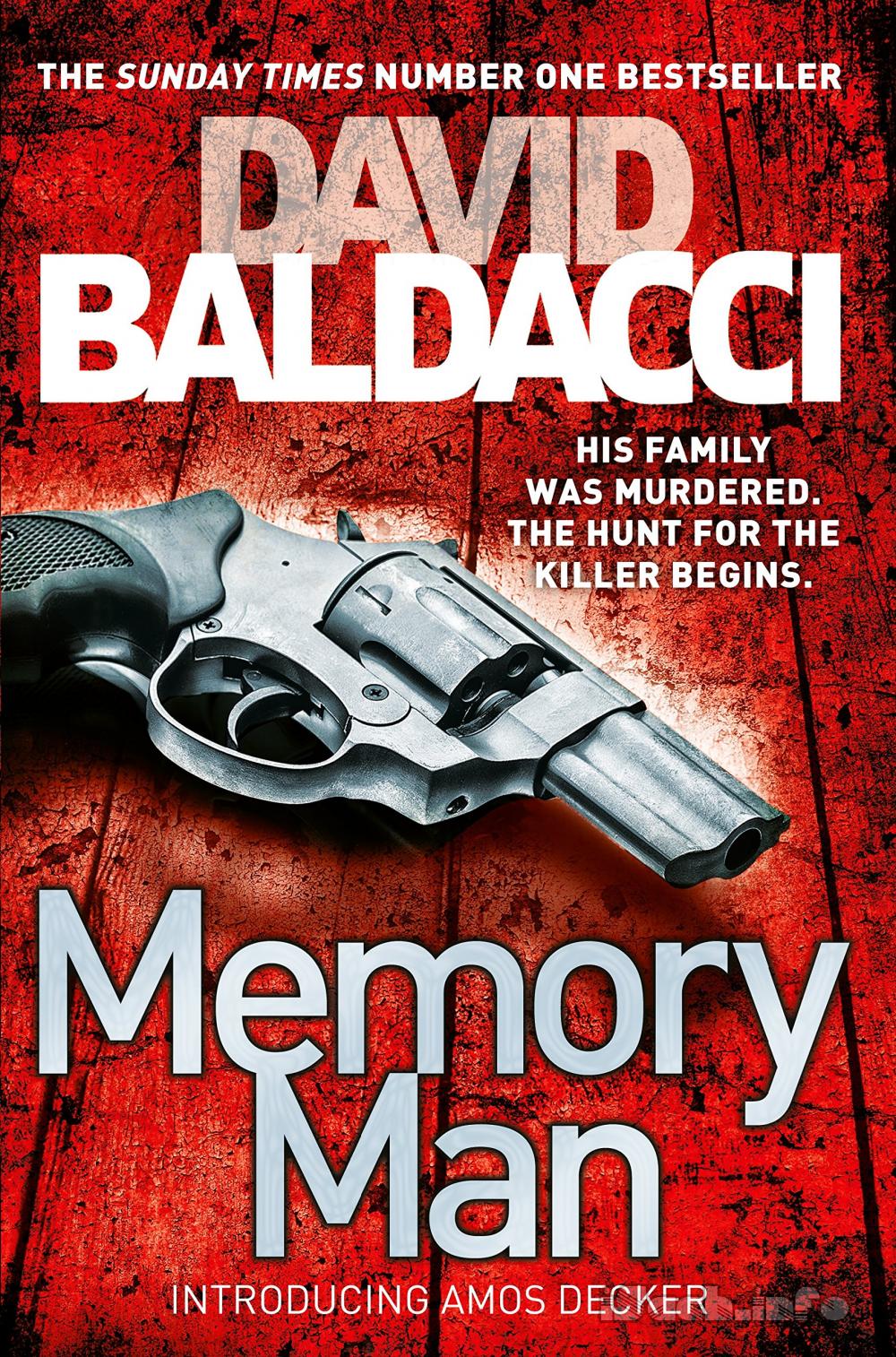Chapter 37
W
HEN DECKER GOT back to the Residence Inn after the search at the storage unit turned up nothing, he found that others had visited him and left very telltale signs behind.A hatchet was stuck in the wood of the door. Slurs had been spray-painted across the window and brick front. Headless baby dolls lay on the concrete. Copies of the news story that Alex Jamison had written were strewn across the catwalk or else taped to the wall, with venomous words scribbled across them. The photo of Decker had been doctored in several of them to make him look like the devil.
Under it was written, “Child Killer.”
Decker pulled the hatchet free, kicked the other items aside, opened his door, and went in, locking the door behind him.
He dropped the hatchet on the bureau, went over to the bed, and lay down. He closed his eyes and tried to think of what he was missing. Because it was there. He knew it was. For the hundredth time he started to go through all the known facts of the case in chronological order.
The knock on his door interrupted these thoughts. He struggled up, crossed the room, and said, “Who is it?”
“Somebody who owes you an apology.”
He recognized the voice and opened the door.
Alex Jamison was standing there holding one of the headless dolls.
“I’m really sorry,” she said, and she actually looked it.
“What do you have to be sorry for?”
“Shit, Decker, you’re making me feel worse than I already do.”
She was dressed all in black, tights, long sweater that covered her butt, low boots with chunky heels, and a short jean jacket. A large bag was slung over one shoulder.
“You have time for a cup of coffee?” she asked.
“Why?”
“I’m not here to interview you.”
“Why, then?”
“Brimmer told me you’ve done all the heavy lifting on this case. Found all the leads, even though she wouldn’t tell me what they were.”
“She’s learning, then.”
“Coffee? I have some things I want to talk to you about. I’ll buy. Please, it’s important.”
He closed the door behind him and they walked down the steps, across the street, and over a few blocks to a coffee shop that occupied a small niche between two larger stores, one of which was boarded up and the other one not far from that fate.
“Whole town is going down the tubes,” observed Jamison as they passed the shuttered store. “Before long I’ll have nothing to write about except bankruptcies and foreclosures.”
They got their coffees and sat at a small table near the back. Decker watched as she spooned sugar into her cup.
“What do you want to talk about?” he asked bluntly.
“I am sorry about the story, Decker. In retrospect you didn’t deserve that. I don’t think you had anything to do with what happened to your family. Like you said, I think some psychopath is looking to first screw you and then destroy you. And he used me to do that and I jumped at the bait just so I could write a story. But that got me wondering why. I mean, who could have that sort of vendetta against you and you not know it?”
Decker sipped his coffee while eyeing her directly but said nothing.
She added, “And I’m sure you’ve been racking your brain trying to think of the same thing.”
“I have.”
“It has to be personal,” she said.
“Murder almost always is.”
“No, I mean more than that. Brimmer told me there were a couple of communications the killer made. Again, she wouldn’t tell me what they said, but they were apparently directed at you.”
Decker said nothing, but his look clearly told her he was interested.
“So I did some digging.”
“Into what?”
“Into you.”
“How?”
“I’m a reporter. We have ways.”
“And what did you find?”
“You’re from Burlington. Biggest sports star the town ever had. The young man who made good.”
This comment made Decker think of the trophy case at the school. “The shooter took all the trophies with my name on them from the case at Mansfield.”
She sat back and looked satisfied and also puzzled by this. “I wonder when he did that. Surely not the day of the shooting. He’s not going to be hauling hardware around.”
“There are ways,” Decker said. “But I can’t get into that now. Maybe one day you can write the whole story.”
She said, “So the question becomes, is it someone who’s from Burlington who had a grudge against you all these years? Big football star versus some nobody in the background who was jealous of your success? The fact that he took the trophies might indicate it is someone local. Who you went to Mansfield with? He might have thought you were gone for good when you went on to college, and then you come back here and become a cop and do all these great things. And all these years the hatred is building and festering until the guy just explodes.”
“Guys,” said Decker.
“Guys? More than one, you mean?”
“You can’t write that.” He leaned forward. “You really can’t write that, Alexandra. If he reads it, he’ll assume you know not only that but more. More that could be dangerous to him. And then dangerous for you.”
“I get that, Decker. You thoroughly scared me before. I go nowhere without Mace and my phone on 911 speed dial.”
“But you came back. You’re here now trying to help me figure this out. They could be watching. Why take the risk?”
“I didn’t get into journalism to be safe. I got into this line of work because I wanted to take risks. You and I are a lot alike on that score.”
“How so?”
“I figure the only job riskier than pro football and police work is being in combat. So you’re a risk-taker. So am I. And if we can do a little good in the meantime, why not? So, any guys you remember from here that hated you?”
“I was good at sports, but I wasn’t good at anything else. And I wasn’t a prick. I had fun. I was a goofball. I made people laugh. I messed up. I was not Mr. Perfect by a long stretch. Aside from what I did on the field, I wasn’t that special.”
“I have a hard time seeing you as a goofball.”
“People change.”
“You did change, didn’t you?”
Decker took another sip of his coffee. “People change. I’m no exception.”
“People do change. But I think you changed more than most.”
“How do you mean exactly?”
“The hit. I watched it on YouTube.”
“Good for you.”
“It was horrible watching it. I can’t imagine how it was, actually being the recipient of it.”
“I don’t really remember it. They told me later I shit my pants. Violent collision like that overpowers the central nervous system. During the preseason the equipment guys came in after games to make sure all the girdles with feces in them were hidden from view and never given out to fans. Along with all the blood inside the helmets and on the uniforms. And they kept the reporters out when the guys were in the trainer’s room postgame so they wouldn’t hear the screams. And they gave players pops of ammonia or painkillers so they could talk to the media and hide the fact that half their brain was gone.”
“I’m not a big fan of football. Gladiators of the twenty-first century, wrecking each other for our amusement while we drink beer and eat hot dogs and cheer when a guy gets wiped out. You’d think we would have gotten beyond that. I guess there’s too much money in it.”
“See, people don’t actually change all that much.”
“After the hit you just disappeared for a long time. Got cut by the team, went into limbo. I couldn’t find anything on you. And then you turned up back here and joined the police academy. A buddy of mine got me your test scores.”
“You have a lot of buddies?”
“A good reporter needs all the help she can get. The scores were all perfect.”
“A fact my old captain told me too.”
“So Captain Miller looked into it as well?”
“Why all the interest in me?”
“Because I figure that to find this guy, or guys, we have to work backward, from the motivation to the source. You’re the motivation. So I have to understand you to get to them.” She paused and tapped a spoon against hercoffee cup. “So where were you during that time?”
“That’s my business.”
“You don’t want to catch these murderers?”
“Didn’t say that.”
“But you know I’m right. You’re the key to what’s happening.” She leaned forward and tapped his thick hand. “I want to help, Decker.”
“What you want is a Pulitzer.”
“I tell you what. You let me help and I won’t write any story without your permission. You get to vet and approve the whole thing. Or you get to pull the trigger and it’ll never see the light of day.”
“You’d agree to that?”
“Yes.”
“Why?”
“Andy Jackson. You know him?”
“The English teacher at Mansfield. Last surviving victim of the shooter. He tried to stop the shooter.”
“He died an hour ago. Andy didn’t always teach at Mansfield. He was a professor at Purdue, where I went. He’s the reason I’m a reporter. He came here to take care of his ailing mother. Sort of person he was.”
“You never said this before.”
“Because that was my business. But I’m saying it now.” She put out a hand. “So that’s my deal. No story if you say so. But in exchange I get to help you track these bastards down. What do you say?”
Decker slowly put out his hand and they shook.
“So where do we start?” she asked.
He rose. “At a storage unit.”



 ePub
ePub A4
A4